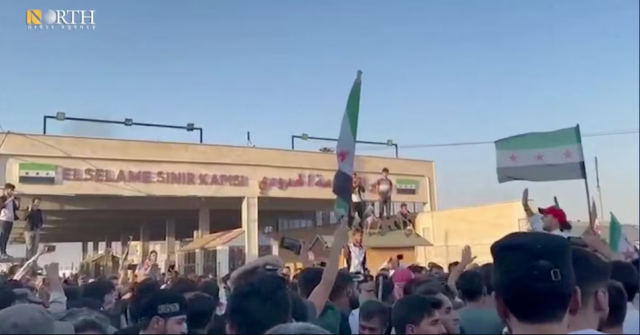Turkey's anti-Syrian riots: Erdogan blames opposition amid rising tensions
Riots targeting Syrian refugees in Turkey escalate, Erdogan blames opposition for stoking xenophobia and violence.

Riots erupted in Turkey's central city of Kirikkale after a Syrian refugee was accused of sexually abusing a seven-year-old child. The incident quickly went viral on social media, sparking outrage and leading to a violent backlash against the Syrian community in the area. An angry mob took to the streets, targeting Syrian homes and businesses. Many were stoned, set on fire, or looted, causing widespread destruction and panic among the refugees.
The Turkish government responded by deploying a large police force to quell the riots, resulting in the arrest of 470 individuals involved in the violence. President Recep Tayyip Erdogan condemned the riots and accused opposition parties of inciting xenophobia and hatred towards Syrian refugees. He emphasized that fueling such sentiments would not lead to any positive outcomes and that acts of vandalism and violence were unacceptable.
Turkey is home to approximately 3.6 million Syrian refugees, the largest population of Syrian refugees in the world. Initially, Erdogan's government welcomed them as part of its "open-door policy" during the early years of the Syrian civil war. However, over the past few years, the Turkish economy has faced significant challenges, and public opinion has turned against the refugees, who are often blamed for economic hardships and social problems.
The recent riots are a stark reminder of the growing tension within Turkish society regarding the refugee issue. Economic strains, rising unemployment, and inflation have exacerbated public resentment towards refugees, leading to frequent incidents of violence and discrimination. The opposition parties have capitalized on these sentiments, using anti-refugee rhetoric to gain political leverage.
The timing of the riots is particularly significant as Erdogan recently expressed a willingness to restore diplomatic ties with Syria. He mentioned the possibility of meeting Syrian President Bashar al-Assad to discuss the repatriation of refugees, a move seen as crucial for Turkey. However, the recent violence complicates these plans, highlighting the deep-seated challenges Erdogan faces in managing the refugee situation and navigating domestic and international politics.
Furthermore, the riots have broader implications for regional stability and international relations. Turkey's strained relations with the European Union and other neighboring countries are influenced by its handling of the refugee crisis. The international community continues to watch closely, urging Turkey to find sustainable solutions that ensure the safety and integration of refugees while addressing the legitimate concerns of its citizens.



















COMMENTS
Comments are moderated and generally will be posted if they are on-topic and not abusive.
For more information, please see our Comments FAQ